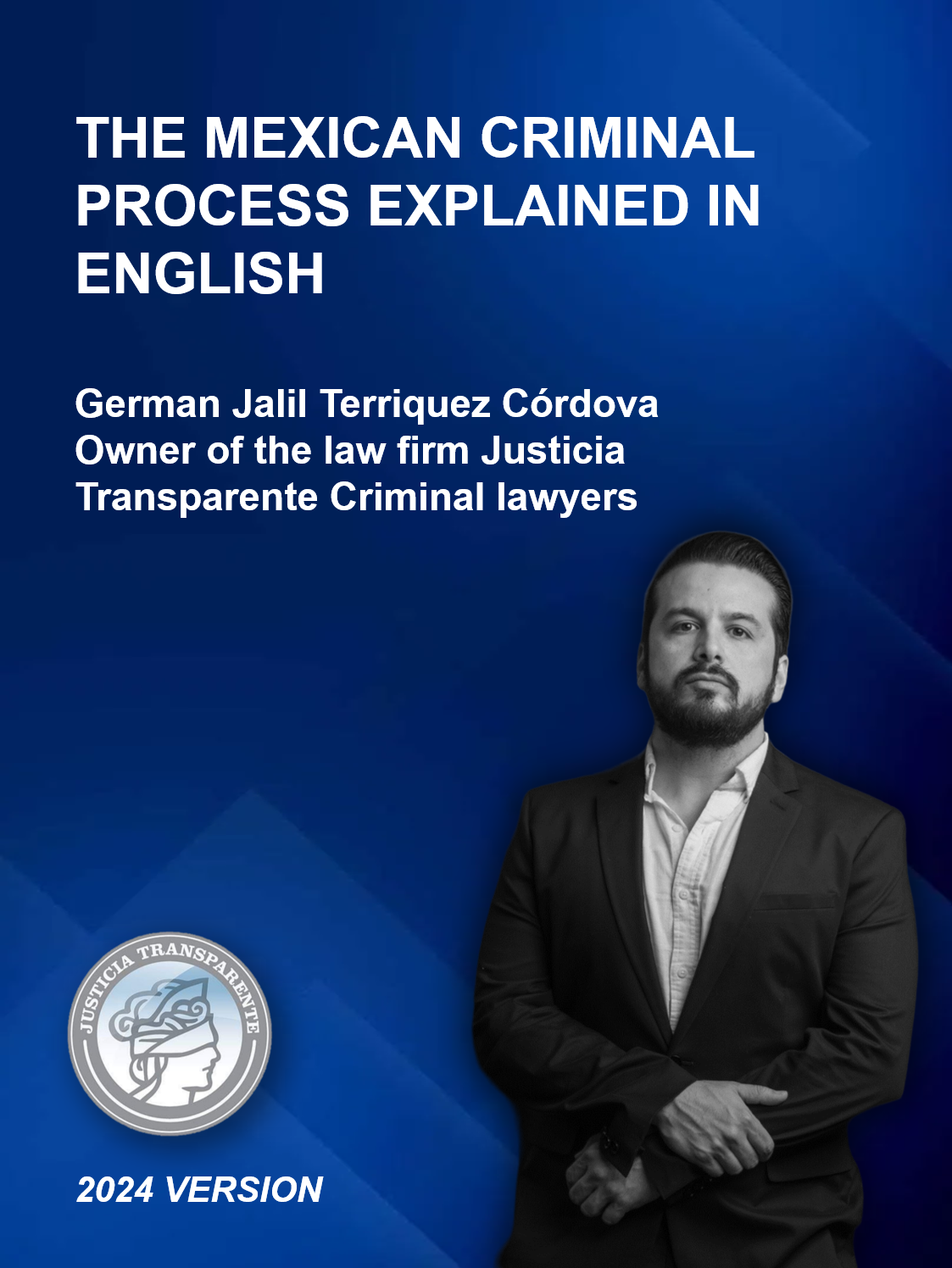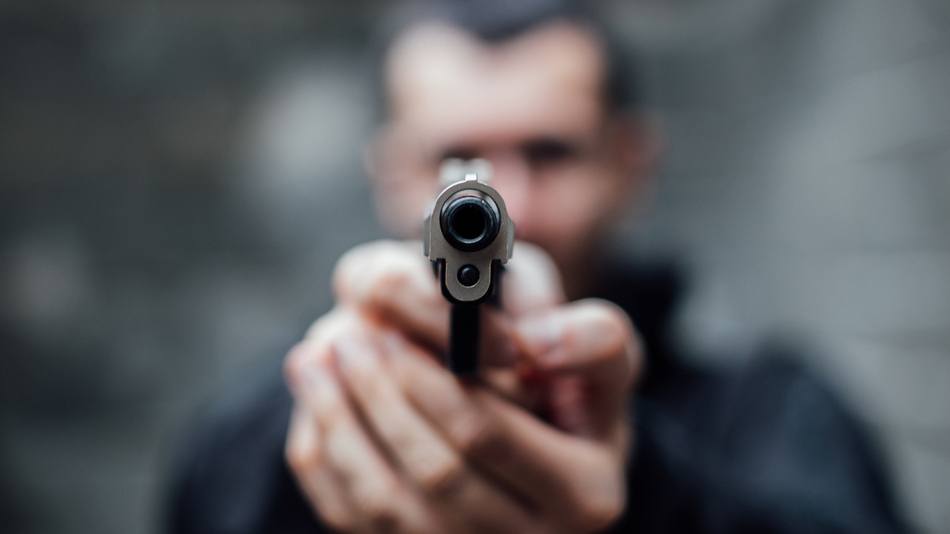
Arrested at Mexican customs with a weapon? Millions of cars pass through Mexico-United States customs, from Tijuana-San Ysidro to Matamoros-Brownsville, which is why, on many occasions, US citizens forget that they carry their weapons in their vehicle and on many occasions when they are checked by Mexican customs agents. and the national guard are surprised with the weapon in their vehicle and sent to the offices of the public ministry, but what should I do or know when I find myself in this situation? With these questions you will know
1. What will happen in my legal situation?
The first thing that will happen is that the authorities that arrested the person with the weapon, which may be the Mexican customs agent or the Mexican National Guard, will carry out all the corresponding documentation, which is called “approved police report” itself. which will include a report of the events that occurred during the detention, the reading of the rights of the detained person (in the event that the detained person does not speak Spanish, they must seek an authority that speaks the language of the detainee), as well as the insured weapon and the vehicle in which they were traveling, all this information and the weapon will be sent to the offices of the prosecutor of the public ministry together with the detainee so that they can initiate an investigation for a period of 48 hours in order to continue investigating what happened.
This is the law that regulates this alleged assumption.
Accused a relative of a crime in Mexico? Do you need to know if it is a crime to bring weapons into Mexico? Do you need to know if it is a crime to bring marijuana into Mexico? The prosecutor is accusing me of having committed a crime that I did not commit? Has your loved one been in jail in Mexico for years?
If you are in one of these situations, hire an online consultation.
Article 146. Cases of flagrante crime A person may be detained without a warrant in case of flagrante crime. It is understood that there is flagrante when:
I. The person is arrested at the time of committing a crime, or
II. Immediately after committing it, she is arrested, by virtue of the fact that:
a) Is caught committing the crime and is materially and uninterruptedly persecuted, or
b) When the person is pointed out by the victim or offended, an eyewitness of the facts or who has intervened with her in the commission of the crime and when she has in her possession instruments, objects, products of the crime or has information or indications that make it reasonably presumed that he intervened in it.
For the purposes of section II, subparagraph b), of this precept, it is considered that the person has been arrested in flagrante delicto for signaling, as long as, immediately after committing the crime, his search or location has not been interrupted.
Article 147. Detention in flagrante arrested Any person may detain another in the commission of a flagrante arrested, and must immediately deliver the detainee to the nearest authority and the latter with the same promptness to the Public Prosecutor’s Office.
The public security forces will be obliged to arrest those who commit a flagrant crime and will register the arrest.
The inspection carried out by the security forces on the accused must be conducted in accordance with the guidelines established for this purpose in this Code.
In this case or when they receive a detained person from any person or authority, they must immediately bring it before the Public Ministry, who will record the time at which they are making it available.
2.What options exist to be released if I am arrested in Mexico for carrying weapons?
The options to carry out your process in freedom will increase if the weapon is not for the exclusive use of the mexican army (same weapons that we will explain later) and if you have roots in the place where you have been detained (roots means living and having your family in the state where you have been detained).
On the other hand, if the weapon for which you have been arrested is for the exclusive use of the Mexican army and armed forces (which we will point out later) or does not have roots in the place where you have been arrested (for example, if you live in California and have been detained in Tijuana) the probability of carrying out your process in prison and not being released within 48 hours increases significantly.
However, there are several legal strategies to achieve the freedom of the detainee in both cases.
It is important to note that being released is not the same as being declared innocent of a case opened against you for the crime of weapons, so when the public prosecutor begins to investigate the criminal matter against the detainee, You can assign a lawyer you trust to analyze the file and verify if the accusation is about a weapon that is not for the exclusive use of the army. In this case, you can seek an agreement with the prosecutor of the public ministry so that the person is released for the purpose of carrying out his investigation in freedom, in accordance with the provisions of this article
Article 140. Freedom during the investigation
In cases of arrest for flagrante delicto, in the case of crimes that do not deserve informal pretrial detention and the Public Prosecutor determines that it will not request pretrial detention as a precautionary measure, it may order the release of the accused or impose a protection measure under the terms of the provided by this Code.
When the Public Prosecutor decrees the freedom of the accused, it will warn him so that he refrains from bothering or affecting the victim or offended party and the witnesses of the fact, not to hinder the investigation and to appear as many times as is summoned for the practice of investigation proceedings. investigation, warning him to impose measures of urgency in case of unjustified disobedience.
This release does not mean that you have been acquitted of the crime for which you are being accused (carrying weapons, cartridges, among others), what will happen is that you will later be summoned to a release hearing for the purpose of appearing before the judge (the court). for the purposes of hearing the fact for which he was being investigated, where you will have the opportunity to defend yourself.
3.What options do I have to be released in court before the Judge?
In order to be released before the judge, three points must be analyzed, in the following order:
Analyze whether the detention carried out by customs agents or the national guard was legal: The first thing that the judge analyzes is this situation, so if this detention was not carried out in accordance with what the law indicates, the judge will order the release.
Analyze whether the detention carried out by customs agents or the national guard was legal: The first thing that the judge analyzes is this situation, so if this detention was not carried out in accordance with what the law indicates, the judge will order the release.
If the arrest was legal, then it will be possible to debate whether there is enough evidence to prosecute the detainee, in the event that the judge considers that there is not, or in its case, that there is some excluding crime or cause excluding crime (for example that you have permission to carry weapons in Mexico) then the person in court will be released
In the event that the judge considers that there are sufficient elements to be prosecuted, he decided to link the detainee to the process, however it is possible that you can be released by the precautionary measure that can be imposed, which means that you will take your process in freedom .
What are non-serious weapons related crimes?
In the event that you have been arrested carrying or in possession of any of these weapons, this means that your crime is not serious, so in these cases, as long as you have roots in the city where you were arrested, you will surely be released in 48 hours.
These are the weapons that are not for the exclusive use of the army:
I.- Semi-automatic pistols with a caliber not exceeding .380 (9mm.), with the exception of .38 Super and .38 Commando caliber pistols, and also in 9 mm calibers. the Mausser, Luger, Parabellum and Command, as well as similar models of the same caliber as the excepted ones, from other brands
II.- Revolvers in calibers not higher than .38 Special, excepting the .357 Magnum caliber.
I.- Pistols, revolvers and .22 caliber rifles, circular fire.
II.- .38 caliber pistols for Olympic or competition shooting purposes.
III.- Shotguns in all their calibers and models, except those with a barrel length of less than 635 mm. (25), and those of caliber greater than 12 (.729 or 18. 5 mm.).
IV.- 3-barrel shotguns in the calibers authorized in the previous section, with a barrel for metallic cartridges of different caliber.
V.- High-powered, repeating or semi-automatic rifles, not convertible to automatic, with the exception of 30” caliber carbines, rifles, carabiners and .223” caliber carbines, 7 and 7.62 mm. and .30” caliber Garand rifles
VI.- High-powered rifles of calibers greater than those indicated in the previous paragraph, with special permission for their use abroad, in hunting large game that does not exist in the national fauna.
VII.- The other weapons of sporting characteristics in accordance with the legal regulations of hunting, applicable by the State Secretariats or Organisms that have interference, as well as the national and international regulations for competition shooting.
If you have been arrested carrying one of these weapons and you do not live in the city where you were arrested for being a foreigner, it is advisable to seek an expert lawyer in criminal matters in order to seek your release within the first hours of your arrest.
What are the serious crimes related to carrying weapons?
a).- .357 Magnum caliber revolvers and those greater than .38 Special.
b).- 9 mm caliber pistols. Parabellum, Luger and the like, the .38 Super and Commando, and those of higher calibers.
c).- Rifles, carabiners, carbines and third guns in caliber .223”, 7 mm., 7.62 mm. and .30” caliber carbines in all its models
d).- Pistols, carbines and rifles with a burst system, submachine guns, submachine guns and machine guns in all their calibers.
e).- Shotguns with a barrel length of less than 635 mm. (25), those with a caliber greater than 12 (.729 or 18.5 mm) and gas launchers, with the exception of those for industrial use.
f).- Ammunition for the above weapons and cartridges with special devices such as tracers, incendiaries, perforating, smoke, expansive gases and those loaded with shots greater than 00 (.84 cms. in diameter) for shotguns.
g).- Cannons, artillery pieces, mortars and tanks with their attachments, accessories, projectiles and ammunition.
h).- Rocket projectiles, torpedoes, grenades, bombs, mines, depth charges, flamethrowers and the like, as well as the devices, artifices and machines for their launching.
i).- Bayonets, sabers and spears.
j).- Ships, submarines, boats and hydroplanes for naval warfare and their weapons.
k).- War aircraft and their weapons.
l).- War devices, gases and chemical substances for exclusively military application, and various devices for use by the armed forces.
In the event of having been arrested carrying any of these weapons, it is advisable to immediately seek the services of an expert lawyer in criminal matters in order to be able to attend to your case in a particular way.
The Mexican criminal process explained in English



